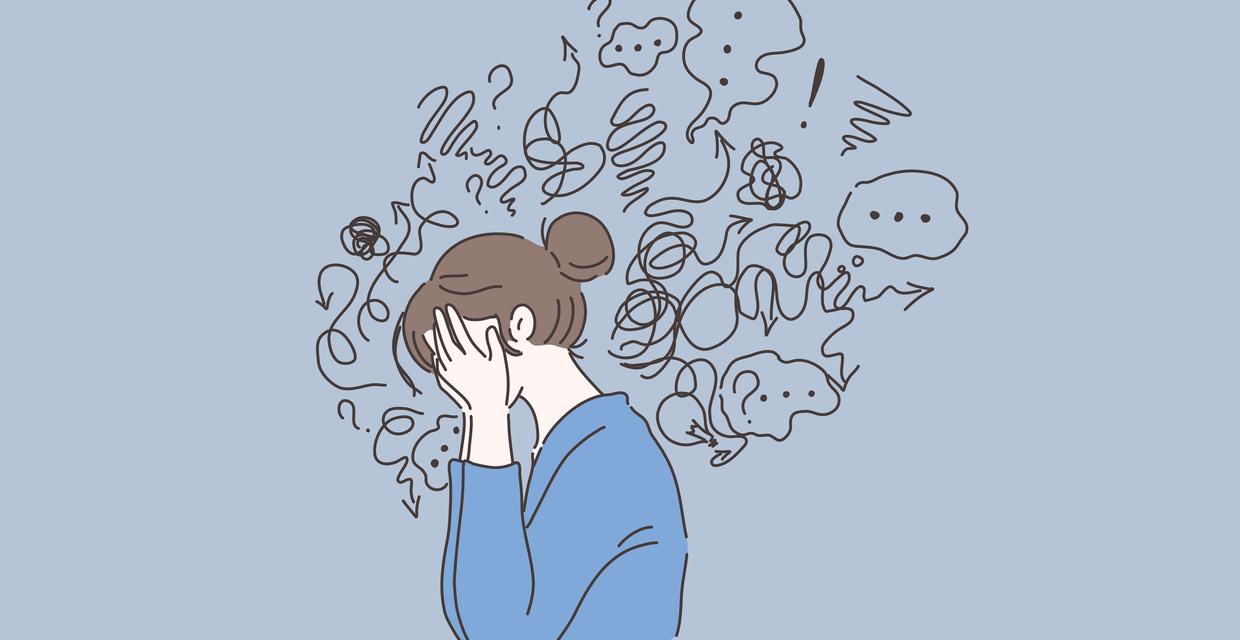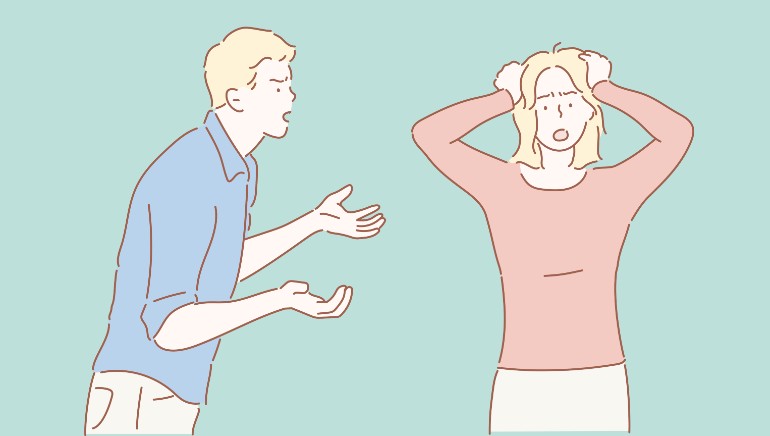Shrinking happiness, shirking mental peace was all that I could describe the state in which I was for years and thought this is how I was supposed to be. I had not smiled in years, I used to laugh but only to cover my deepest fears. I had not been able to wake up from my bed without a severe headache popping pills like candies for years! This is how I thought I was supposed to be: reckless, messed up, chaotic, sad and deserving of nothing. It was unlike me, all my friends and family had noticed. I was always fun-loving, happy, active and content but not anymore. It took me months to learn how much I had changed, unable to recognise myself anymore. All I could think of was, “Am I to blame?”
My ex (From here onwards X) had ready-made answers, “Yes, you are solely responsible for your own unhappiness.” X was quick to point out how not only was I sad but, I was also able to make those around me sad. That this was how everyone around me thought but never said to my face because I was “too sensitive”. I believed X, every word he said. I was made to think of myself as an incompetent person, unable to function in this world and that I needed his saving. He was the only man who could speak the truth to me. YES, I allowed him yet I wondered for years, “Am I to blame?”
Also read: How To Spot Signs Of Emotional Abuse In Your Relationship

It took me years to come to terms with the undeniable fact that I was in an extremely toxic, unhealthy relationship but it took me months of therapy to realise that I was emotionally abused for years. Being a strong, independent, young woman, how could I have let myself be in this kind of a situation? It was baffling to me as I opened myself up to people who showed me the mirror which I had been avoiding to see for long. Friends, whom I had cut out from my life as terms and conditions of a peaceful relationship with X, made me realise I had been ABUSED.
My friends often asked me “Why didn’t you leave?” I could not explain how trapped I felt in the vicious cycle of abuse. The moment I communicated my needs, I was made to feel wrong, embarrassed and I was deemed possessive and controlling, my insecurities were far too many for me to see the love X actually showered on me. The moment I felt like leaving and ending things, sudden apologies and warmth made me rethink my decision every time. I was left mum every time I was asked this. I felt attacked not only by X but others too!
While one is very aware and can overtly recognise physical abuse, it is nearly impossible to identify emotional abuse. It takes weeks and months of repetitive behavioral pattern(s) to realise its harmful effects on oneself let alone call out the perpetrator. Something similar to how a frog put in a pot of boiling water gradually boils to death.
Emotional abuse is a way to control another person by using emotions to criticise, embarrass, shame, blame, or otherwise manipulate another person. It chips away at the victim’s self-esteem and they begin to doubt their perceptions and reality. The emotional abuser wields power to control the victim by discrediting, silencing and isolating them.

Studies show that one in every three women faces intimate partner violence across the world, according to the World Health Organization. Moreover, young women are at a higher risk of emotional abuse. The latter is certainly a grave form of abuse but is often neglected and considered less important while discussing violence on women or more specifically Intimate Partner Violence. It is important to note that emotional abuse in IPV is considered a human rights violation and public health issue throughout the world.
The intangibility of emotional abuse makes it very hard to identify but nonetheless, it is a form of abuse that is often a precursor to physical abuse. Signs of emotional abuse can be spotted in early stages of the relationship. Some of them include constant blame and isolation, which is to say that the abuser makes the victim believe that nobody really cares about them except the former, regular bouts of anger and yelling, incessant invalidation of the victim’s feelings and thoughts, accusing them of being “crazy” or “too sensitive”, dismissing the victim’s needs as unmeritorious or not worthy of being met.
In all of this, the victim is made to look like an inferior, being condescended and chastised for being so. Gaslighting is one of the main techniques used by an abuser. In simplest words, it is “toxic manipulation” that makes the recipient question their own judgment and sanity, even distorts their reality to favor that of the abuser. The victim may not even realise that they are being gaslighted and think that their actions are autonomous of their abuser’s will. For instance, you may not have cheated on your partner, but they might manipulate and constantly blame you for it and make you think in the most non-coercive manner that the victim has, after all, cheated and betrayed them. Another example could be of the victim doubting sexual infidelity on part of their abusive partners and when brought into notice the latter claims the former to be paranoid and controlling. (The script sounds too familiar to me!)
For far too long, I was made to think in the most persuasive manner that I was guilty of being the way I was: sad, unlovable and undeserving of any care and affection. My mental health was way too low and crashed beyond a point where I couldn’t look at myself in the mirror anymore. I blamed myself for far too long. I was being unkind towards myself, disgusted at my own touch and lost interest in all my pursuits and hobbies. I had no friends to fall back upon, no one to really hug and who could in turn, tell me “it will be okay”.
The day I became aware of the degree of abuse I had been through in the name of ‘love, friendship and care’ by X, I remember feeling nothing. I did not know if it was right to feel sad or angry or devastated. My whole belief system was shattered. I was, suicidal, dysfunctional, devoid of sleep, basically a ‘lifeless frame’ (courtesy: Taylor Swift, “All Too Well”). This is what emotional abuse does to a person.

Fortunately, I have seen better days now, I have heard myself constantly say “this too shall pass” countless times, I have been able to stand up, walk and run these days. I have learnt that the abuser might go but the trauma given by them stays. It leaves an indelible mark on you. Time is the best healer they say but to this day, the hardest struggle for me is to answer the perpetual question: “Am I to blame?”
P.S. Writing this piece has been therapeutic, indeed. But more than that, the intent is not to narrate an anecdote from my worn out pages of personal diary but for the readers who may themselves have been abused or have had friends who were. For months, I have felt powerful and yet powerless at the same time. The intention of writing this piece is not to make anyone pay but my little attempt to raise mental health awareness and diversify the discourse on gender violence. I extend my solidarity to the readers. More power to you! And I write this wishing for you all the kindness, courage and happiness. You deserve all of it. 🙂
Sanjana(She/her) is pursuing her PhD in Political Science from the Centre for Political Studies, Jawaharlal Nehru University. She identifies herself as a feminist and has an interest in gender and protest politics. You’ll often spot her listening to music, dancing in some corner or sitting silently under fairy lights. You can find her on Instagram, LinkedIn and Facebook.
Featured image source: BBC





This is so similar to how my ex-wife used to treat me, along with constant threats of a false case of dowry, constantly yelling at me in public, wasting all my money on shopping and restaurants, calling me a beggar, calling my family members filthy names, and then cheating on me with her boss in my home while I was away. I was wise enough not to have any kids with her, otherwise I would have never got to see them again.